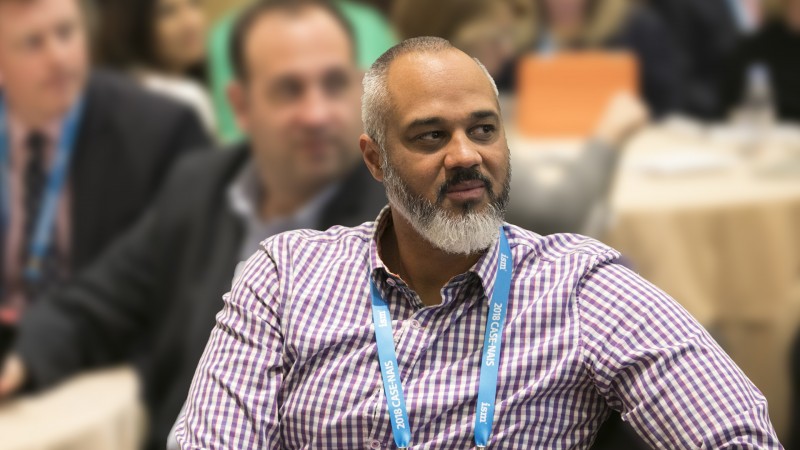
Three Powerful Major Gift Questions You Might Not Be Asking
You already know the importance of asking strategic questions and listening to understand, rather than to respond or (even worse) not listen and only react. Having strategic conversations with your donors helps you establish rapport, build trust, uncover essential information, and share your mission and vision in an interactive and memorable manner.
Asking questions—even personal and sensitive questions—isn't hard if you are genuinely interested in the answers. Frame your questions so your donor knows why you are asking—and then shut up and listen.
We all have our tried-and-true questions.
We often start with rapport-building questions that reveal family and business information. There are the passion questions and inquiries about motivations and giving interests. We probe for philanthropic priorities. I know you ask about philanthropic decision-makers and process so you can engage the right people. These are all great areas of inquiry.
Some questions, however, are more powerful than others are. Certain types of questions can build trust faster and deepen the relationship more quickly.
Here are three types of questions you may not be asking.
Generosity Questions.
- Frame: “We are interested in the origins of generosity. How staff members, volunteers and donors think about it, teach it. How they learned to be generous.
- Question: “May, I ask about your earliest memory of giving back?”
- Follow-up questions:
- “How has that experience influenced you as an adult?”
- “How have you taught your children?”
- “How important was that experience to you?”
- “How does that experience influence your philanthropy and volunteering today?”
- What these questions reveal: You’ll learn about the depth of the donor’s commitment to philanthropy. You’ll help your donor think more deeply about that commitment, tap into life-shaping memories that they are passing along to children and/or grandchildren. You are letting your donor talk about herself in a manner that will be productive for you and pleasing to her. It gives you an easy segue to the next set of powerful questions.
Values Questions.
- Frame: “It sounds like (whatever you learned from the questions above). I learned generosity in a similar manner (or whatever is true for you).”
- Question: “As you think about your philanthropy today, how would you describe the values that underpin your decisions?”
- Follow-up questions:
- “To what degree is that true for (the decision-makers)?”
- “Which of our institutional values do you find most relevant?”
- Alternatively: “What values do you believe people who work for institutions like ours (people who serve on the boards of institutions like ours) should demonstrate?”
- Why values questions are so important: Research indicates that values play a critical part in major donor decision-making. Most want to give where there is values alignment. This line of questions helps you uncover the donor’s values but also gives you opportunities to share (or remind the donor of) the values for which your institution stands.
Impact Questions.
- Frame: “We believe in reporting to our donors. We want everyone to understand the impact of their investments in (the people you serve, the cause you represent, or the societal problem you are solving).
- Question: “What impact do you believe we are having in the community?” “How so?” What impact do you believe your philanthropy is having on the institutions in which you invest (on the societal problems you are trying to help solve) (on the people (causes) you help with your philanthropy?”
- Why impact questions are so powerful. People give to make a difference. You can tell them about the difference they are making and you should, you must, through your stewardship program. You can demonstrate it with stewardship experiences, connecting your donors directly to the impact of their inspired, joyful, generous investments. You should. You must. In addition, by asking these questions you reinforce that knowledge and BELIEF. “My gifts matter. I just said it aloud. It must be true.”
In order to get the most out of your strategic conversations, be sure to only speak 30% of the time and listen the other 70%. In addition, probe and unpack. People rarely give us full answers with one question. “How so?” “Can you say more about that?” “How did that feel?” “Why was that so important to you?”
Karen Osborne is the chair of Major Gift Strategies: Fall Session, Oct. 2–4, 2019, in Seattle. This content was originally featured on 101fundraising, a crowdsourced blog on fundraising.
Learn more at Major Gift Strategies: Fall Session
About the author(s)
Karen is passionate about the power of education to change our world for the better. She is a volunteer, philanthropist, and trustee, living her beliefs. She has volunteered for CASE for over 30 years. CASE awarded Karen the Crystal Apple for Outstanding Teaching and Public Speaking and honored her in 2014 with The Ashmore Award for Outstanding Service to the Profession.
For seven years, Karen has served as an adjunct faculty member for Johns Hopkins University’s graduate certificate program in nonprofit management.
Nationally and internationally recognized as an excellent consultant, executive coach, and presenter, Karen receives invitations from all over the United States and the world. She frequently presents at local, national and international conferences.
For 18 of Karen’s 43 years in philanthropy and institutional advancement, Karen served as a frontline fundraiser and leader including NY State Department of Education; Director of Development, Rensselaer Polytechnic Institute, Troy, NY; and Vice President for Advancement at Trinity College in Hartford, CT responsible for development, alumni relations, information systems and marketing and communications. For the past 25 years, Karen served as President and now Senior Strategist for The Osborne Group, Inc. www.theosbornegroup.com
Karen is also a debut novelist. “Getting It Right,” came out June 6, 2017. Her second novel Tangled Lies came out in July 2021. www.kareneosborne.com








